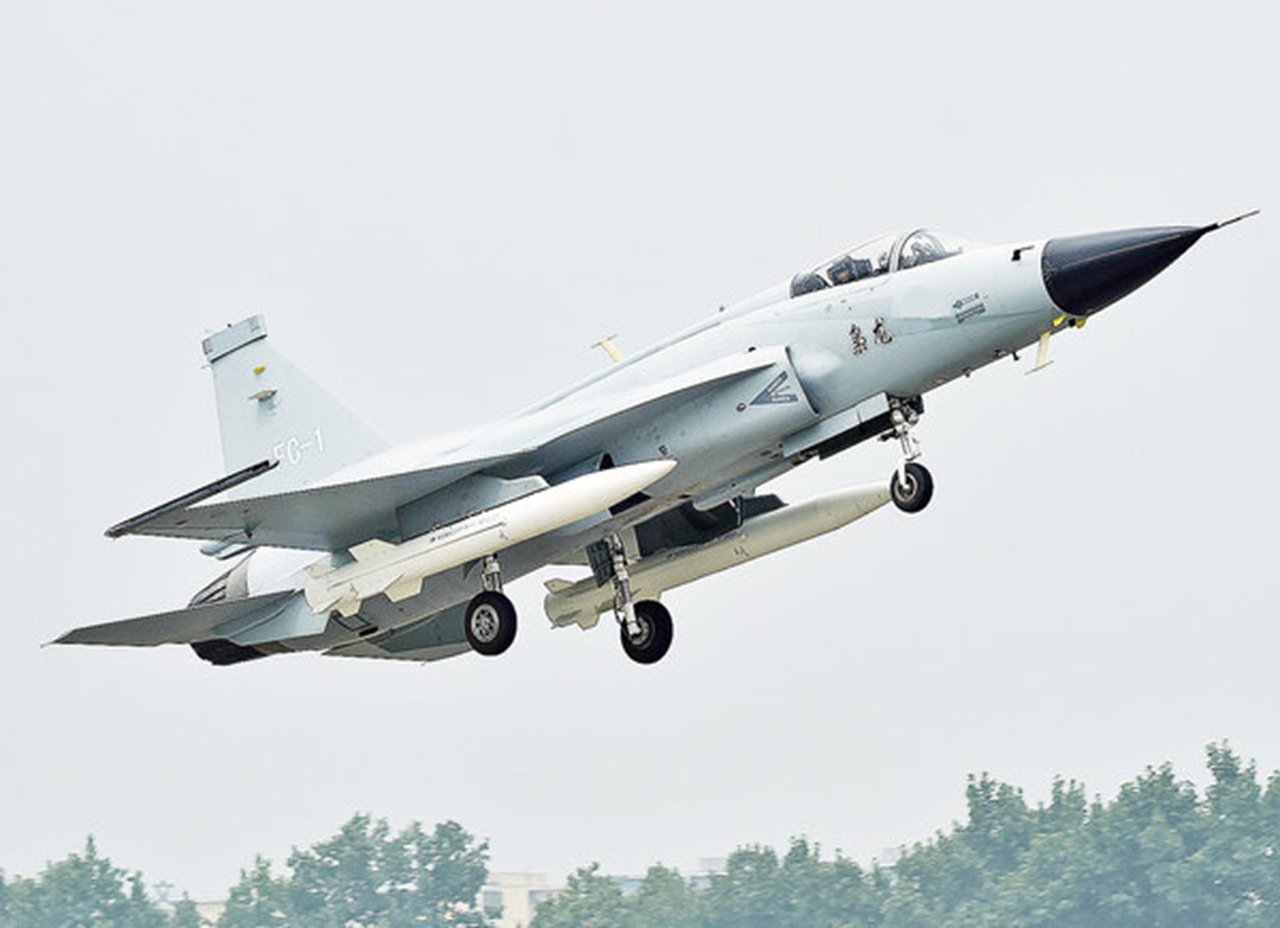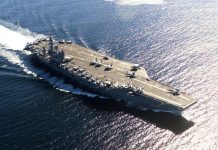Azerbaijan has signed a contract to purchase Pak-Chinese fighter jets, JF-17 Thunder Block III (also known as FC-1 Xiaolong.”
Azerbaijan’s offensive capability augmentation comes as Armenia is bulwarking its defenses via Indian and French equipment like Akash surface-to-air missiles.
Azerbaijan will purchase the fighter jets for US $1.6 billion. The deal encompasses pilots’ training and acquisition of armament. The rumors have been going on for some time, but Azernews said that the export of JF-17 to Baku will take place after the completion of 62 fighter jets to the Pakistan Air Force by 2024.
Pakistani expert Dr. Mehmood ul Hassan Khan said that the deal is confirmed by Pakistani sources. The sale of JF-17 ‘Thunder’ to Azerbaijan is the largest defense export deal in Pakistan’s history. The deal will supply eight fighter jets in the first tranche with a clause for a follow-on order of another 8 JF-17s. Azerbaijan has become the third country after Myanmar and Nigeria to opt for the fighter jet.
The JF-17 Thunder combat aircraft is jointly developed by the Pakistan Aeronautical Complex and China’s Chengdu Aircraft Industry Corp. It has a Chinese airframe and Western avionics, and a Russian engine powers it.
The Block III variant boasts enhanced weapons capability, making it more versatile in different combat scenarios. It can deploy diverse ordnance, including air-to-air, air-to-surface, anti-ship missiles, and guided and unguided bombs. It is equipped with the PL-15 Beyond Visual Range (BVR) missile with a range of up to 300 kilometers.
The older variant has been facing problems with the engines. Technical malfunction forced Myanmar to ground its fleet of JF-17. Block III features a new engine, possibly an enhanced derivative of the RD-33MK (which powers the Russian MiG-35) or the WS 10A. This engine upgrade contributes to improved performance and agility.
The JF-17 Block III can exceed Mach 2 speeds by approximately 2,470 kilometers per hour. Its agility and maneuverability are crucial for air combat.
Block III incorporates an active electronically scanned array (AESA) radar, enhancing situational awareness and target tracking. It also features a helmet-mounted display (HMD) for improved pilot targeting and engagement. There are reports of an internal infrared search and tracking (IRST) system being considered.
The cost-effectiveness of JF-17 Thunder is its main advantage. It comes at roughly half the cost of the F-16 Fighting Falcon. While expected to be costlier, the Block III variant still offers significant advantages over its competitors.
Akash Versus JF-17
Despite the brief spell of peace between the two countries, Armenia and Azerbaijan are re-arming themselves to prepare for future conflict. Armenia has purchased Akash surface-to-air missiles from India to fight Azerbaijan’s aerial threat. India’s supply of air defense systems to Armenia has facilitated restraint from the Azerbaijan side.
Akash is a short-range SAM system manufactured by Bharat Dynamics Limited (BDL) to protect vulnerable areas and points from air attacks. The Akash Weapon System (AWS) can simultaneously engage Multiple Targets in Group Mode or Autonomous Mode.
It has built-in Electronic Counter-Counter Measures (ECCM) features. The entire weapon system is put atop mobile platforms.
It can effectively engage helicopters, fighter jets, and UAVs flying in the range of 4-25 kilometers. It is fully automatic and has a quick response time from target detection to kill.
It is highly immune to active and passive jamming. It can be transported swiftly via rail or road and deployed quickly. The project has an overall indigenous content of 82 percent, which will be increased to 93 percent by 2026-27.
The conflict has created two axes – one comprising Azerbaijan, Turkey, and Pakistan and another of Armenia, India, and France. The latest hostilities will see the use of newly acquired Indian weapons like Pinaka multi-barrel rocket launcher (MBRL) to Armenia and Bayraktar Akinci ‘Raider’ drones in Azerbaijan’s inventory.
However, this tumultuous peace is under threat as Baku inks deal for JF-17 Block III fighter jets after displaying its latest Bayrakta Akinci ‘Raider’. The possibility of the clash between two systems – the aircraft and the SAMs- is approaching sooner rather than later.
Presently, Azerbaijan’s air force relies primarily on aging Soviet-era fighter jets like the MiG-29 and Su-25. The addition of the JF-17 Block III would provide a substantial leap in technology and firepower. With its advanced weapons capability, improved radar systems, and agility, the JF-17 can enhance Azerbaijan’s air combat capabilities.
It remains to be seen if SAM will prove adequate against the JF-17, which, with its BVR missiles, can strike from well outside the range of the missile. One thing remains sure: the purchase of JF-17 Block III will further fuel the arms race in the region.

China – The New Player In The South Caucasus
The deal could influence the strategic calculus in the South Caucasus and impact regional stability. Azerbaijan has formed a triad with Pakistan and Turkey; soon after the military offensive against Armenia, the three countries conducted a military exercise called ‘Three Brothers.’
However, with the sale of JF-17 Block III, China’s role in the region could be further enhanced.
So far, Russia has been arming both the parties in the conflict. However, as Moscow is tied down in Ukraine, Baku and Yerevan are looking for alternate sources of military hardware. The JF-17 deal is introducing a new player in the regional military landscape.
- Ritu Sharma has been a journalist for over a decade, writing on defense, foreign affairs, and nuclear technology.
- She can be reached at ritu.sharma (at) mail.com
- Follow EurAsian Times on Google News




